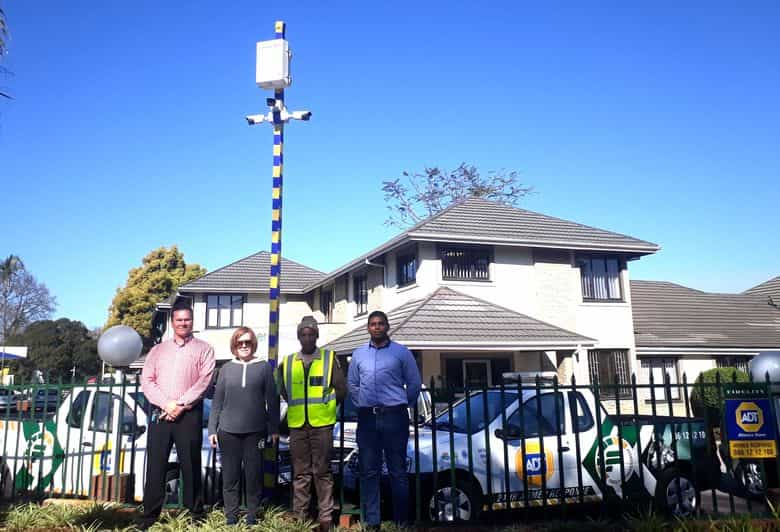A fundraising event was held in the Market Square in Plettenberg Bay which involved various security stakeholders including Fidelity ADT and the Plettenberg Bay Crime Prevention Association (PBCPA).
“We were delighted to be able to join the event in support of the Kwano Crime Prevention Response who was trying to raise funds to buy patrol scooters. This was done in collaboration with the PBCPA whom we have enjoyed a long standing partnership with over the years. We aim to show our support towards community crime prevention entities by any means possible,” says Fidelity ADT’s branch manager for Garden Route, Pieter Meiring.
The PBCPA was created in 2011 after criminal activity increased in the Plettenberg Bay region. The committee has since been responsible for implementing various crime solutions, which includes building strong relationships with local authorities as well as private security companies.
Together with Fidelity ADT, they continue to empower other crime fighting entities such as the Kwano Crime Prevention Response who was launched in May 2020. The entity was established for similar reasons as the PBCPA which started following a rise in crime throughout the Kwano footprint.
The Kwano Crime Prevention Response unit has multiple crime related challenges which they are facing in the area, hence they decided that they needed to find a way to enhance their resources. These scooters will help their patrollers to cover larger footprints when patrolling while also increasing their response times with regards to emergencies.
“The fundraising event was held to raise money which will allow them to buy scooters which they can use to patrol the streets of Kwano. It was facilitated by the PBCPA who confirmed that the event was a great success and that their objectives for the day were achieved,” Meiring added.
Many communities within the Garden Route has formed community-based law enforcement entities such as Neighbourhood Watches and Community Policing Forums to address local crime concerns. Many of these entities rely heavily on funding from residents and the support from private security companies.











